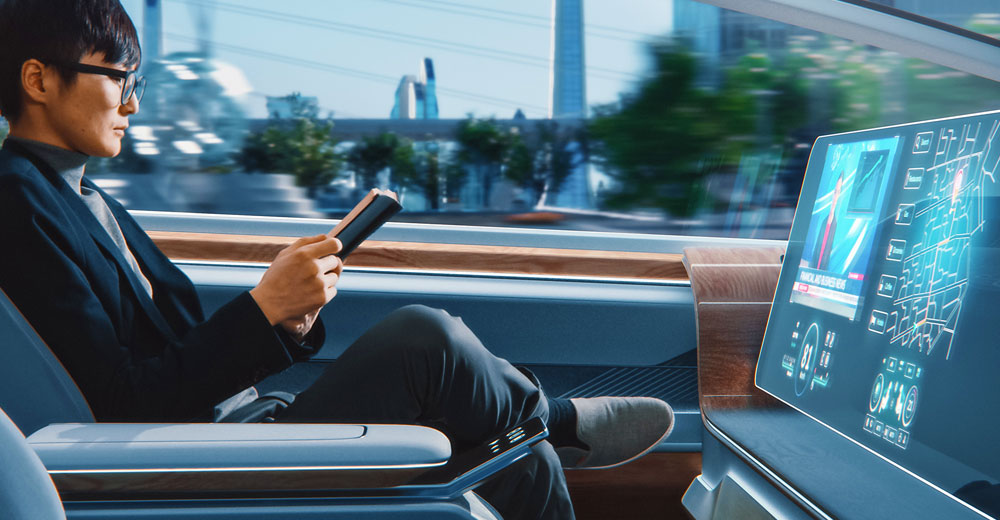In recent years, the intersection of artificial intelligence (AI) and electric vehicles (EVs) has sparked a revolution in urban transport, promising a future that is not only sustainable but also smarter and more efficient. According to Bloomberg Green, global EV sales surged 80% in 2022, with AI technologies playing a crucial role in this growth. This article explores how AI-driven innovations are transforming urban mobility, making it not only cleaner but also more intelligent and adaptable. You’ll discover the latest advancements in AI for EVs, learn how these changes will impact urban transport, and understand the practical steps you can take to embrace this future.
AI-Powered Autonomous Driving: The Road to Smart Cities
Enhanced Safety and Efficiency
One of the most significant AI-driven innovations in EVs is autonomous driving technology. AI algorithms, such as Tesla’s Autopilot and Waymo’s self-driving systems, are designed to interpret vast amounts of data from sensors and cameras, enabling vehicles to navigate complex urban environments safely. According to Wired, autonomous vehicles could reduce traffic accidents by up to 90%, making our streets safer for everyone.
- Key Features of AI in Autonomous EVs:
- Real-time Traffic Analysis: AI can predict traffic patterns, optimizing routes and reducing congestion.
- Adaptive Learning: Vehicles learn from each trip, improving their navigation and decision-making over time.
- Collision Avoidance: Advanced systems detect potential hazards and react faster than human drivers.
Urban Planning and Infrastructure
AI-driven EVs are also influencing urban planning. As cities integrate autonomous vehicles, they’re rethinking infrastructure to accommodate these smart vehicles. Reuters Mobility highlights how cities like San Francisco and Singapore are investing in smart traffic lights and dedicated lanes to facilitate autonomous EVs. This shift promises to enhance traffic flow and reduce pollution in densely populated areas.
Intelligent Energy Management: The Backbone of Sustainable Transport
Smart Charging Solutions
Energy management is a critical aspect of the EV revolution. AI technologies are making charging more efficient through smart grids and predictive analytics. According to PV Magazine, smart charging stations can adjust electricity demand based on grid capacity, reducing strain during peak hours.
- Benefits of AI in Energy Management:
- Optimized Charging Times: AI predicts when energy demand is low, scheduling charging accordingly to save costs.
- Dynamic Pricing Models: Consumers benefit from lower rates during off-peak hours.
- Integration with Renewable Energy Sources: AI ensures EVs use green energy whenever possible, reducing carbon footprints.
Battery Health and Longevity
Battery technology is another area where AI is making a significant impact. InsideEVs reports that AI can monitor battery health in real-time, predicting potential failures and optimizing charging cycles to extend battery life. This innovation not only reduces maintenance costs but also enhances the overall reliability of EVs.
Personalized User Experience: A New Era of Connectivity
Adaptive In-Car Systems
AI is transforming how drivers interact with their vehicles. Brands like Lucid Motors and Rivian are incorporating AI-driven systems that learn driver preferences, offering personalized recommendations for navigation, music, and even climate settings. This level of customization enhances the driving experience, making it more enjoyable and efficient.
Seamless Integration with Digital Ecosystems
AI enables seamless connectivity between EVs and digital ecosystems. For example, Hyundai’s Blue Link and Ford’s SYNC systems offer features like remote start, location tracking, and over-the-air updates, ensuring vehicles remain up-to-date with the latest software advancements.
Practical Guide to Embracing AI-Driven EV Innovations
How to Choose the Right AI-Enabled EV
When selecting an AI-powered EV, consider the following factors:
- Autonomous Driving Features: Evaluate the level of autonomy and specific features offered.
- Energy Management Systems: Look for smart charging and battery optimization capabilities.
- Connectivity Options: Ensure the vehicle integrates well with your digital lifestyle.
Where to Buy and Charge Your AI-Driven EV
- Dealerships and Online Platforms: Tesla, Volkswagen, and Nissan offer direct sales and online ordering.
- Charging Networks: Utilize networks like ChargePoint and Electrify America for reliable access to charging stations.
The Future of Urban Transport: A Shared Vision
In conclusion, AI-driven EV innovations are reshaping urban transport in profound ways, making it safer, more efficient, and more sustainable. As these technologies continue to evolve, they promise to revolutionize our cities, turning them into smart hubs of connectivity and green energy. Whether you’re an early adopter or a curious observer, there’s never been a more exciting time to explore the future of mobility.
Call to Action
Are you ready to embrace the future of urban transport? Share your thoughts on AI-driven EV innovations and let us know how you see these technologies impacting your city. Together, we can drive the transition towards smarter and more sustainable urban mobility.
As we look ahead, the integration of AI and EV technology will continue to advance, paving the way for a future where urban transport is not only efficient but also aligned with our environmental goals. The journey has just begun, and the road ahead is full of possibilities.

